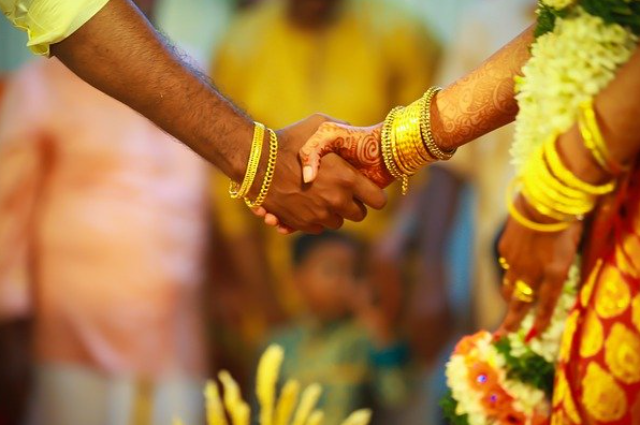
Priya returned to her mother’s house when her husband went for a business tour. Her mother was happy and ensured all her favourite dishes were prepared in the kitchen. The mother climbed up the stairs to her daughter’s room with hot carrot halwa in her hands; she entered the room to find her daughter dead with slit writs and melancholy written on her lifeless face. “How can I undo this? How can I bring my daughter back?”, she wondered with anguish.
The story above isn’t unusual at all.
We have heard many stories that are analogous to the overhead fictitious Conte; how married women choose to end their lives merely because they feel inadequate or are made to feel inadequate in their marriages since they haven’t or have given very little Dowry to their husbands. Some may find that despite honouring to all the Dowry requests before marriage, they are still being compared to other women who might have come home with more jewellery, a bigger car, or a bigger flat.
The term “Dowry” isn’t used anymore; some high brows prefer calling it “gifts” or “blessings” or the most known phrase “the traditional way”. Many decades ago, Dowry used to be a voluntary gift given to the newlyweds by the bride’s family; more like a “Valuable Security” when they start their new lives together. Later, it became an apparatus to exploit the bride’s family with arbitrary demands of gifts, cash, and jewellery before and after marriage. There have been many cases of suicides, murders, and emotional and physical abuses when these Dowry demands were not met.
The Act of giving Dowry was abolished on 1st May 1961. However, it is continued even today in different parts of our country. The level of the Dowry amount depends on the job of the man and is decided prior to the wedding. However, there have been cases of Dowry demands made post marriage to buy cars, houses, education, or other expensive gifts; and when the demands are not met as desired, the women in the house are inflicted with cruelty and agony.
The reason why “Dowry” still exists, is because of gender disparity throughout the country. Even today, women are considered a liability for their families; especially in the rural parts of our county where the birth of a daughter is tantamount to the demise of the family’s happiness. A daughter born in such a family isn’t given enough education and is in the early years of her life taught to be confined to the four corners of the wall.
Even though Dowry is abolished in theory, it is still practised surprisingly almost everywhere by every class of people. The problem arises when deceptive promises are made by the bride’s family to the bridegroom fearing that their daughter will stay unmarried for ever. They give in to every unwarranted demand made prior to the marriage without a second thought. What they don’t realize is that hollow words don’t bring any kind of happiness to their daughter’s life, in fact failure to meet these demands can be a huge stumble.
Section 304B of the Indian Penal Code and Section 113B of the Indian Evidence Act undoubtedly expresses that if a woman dies within seven years of marriage by any means and was discovered that she was exposed to brutality or any violence by her in-laws or husband, then the death will be considered as death due to dowry. The punishment for dowry will be a minimum sentence of seven years and a maximum sentence for life. However, why wait till a daughter is tortured, murdered, or driven to commit suicide? Why treat our daughters like burdens and save for their marriage instead of saving for their education that could help make them self-dependent and resourceful.
The only way to potentially obliterate the evils of dowry is to educate our daughters, encourage them to chase their dreams, help develop their hobbies and inspire self-independence. Let’s teach our daughters that it’s more important to stay happy and content with themselves instead of trying hard to impress others arbitrarily. Getting married and settling down shouldn’t be their precedence in their lives. When we talk about making difference in the world, let’s begin with our own homes first. After all, charity begins at home.
